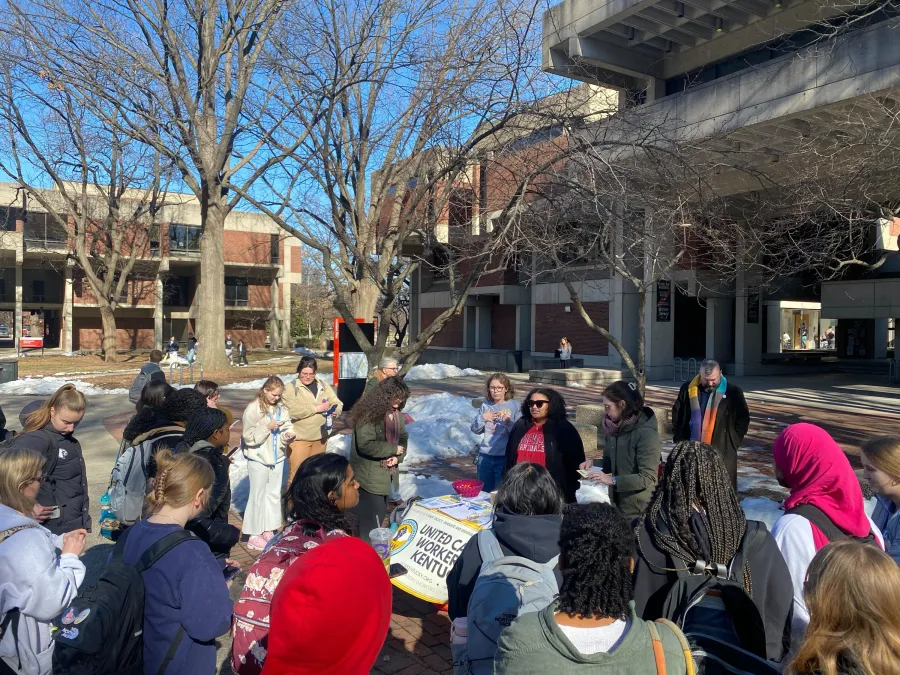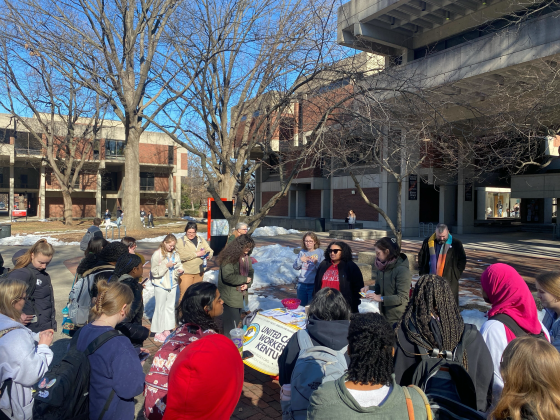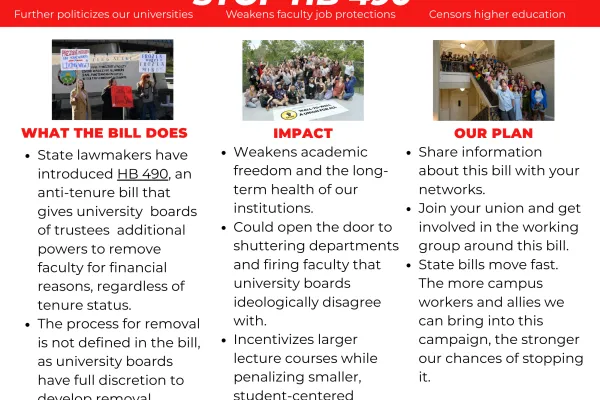Kentucky Advocates Rally to Defend DEI

This article was originally published in the Insight Into Diversityon February 4, 2025
A coalition of faculty, staff, students, and community members across Kentucky is pushing back against rhetoric and potential legislation that seeks to dismantle DEI (diversity, equity, and inclusion) programs in higher education. Led by the Murray State University chapter of United Campus Workers and a newly formed alliance called Kentuckians for Higher Education (KfHE), the movement is working to protect programs that provide critical resources for students from underrepresented backgrounds.
On January 28, the group organized DEI Awareness Day at multiple campuses, including Murray State University, Eastern Kentucky University, the University of Louisville (UofL), Morehead State University, and the University of Kentucky. The initiative aimed to educate students and faculty about the potential consequences of anti-DEI legislation, including the loss of services for disabled students, veterans, first-generation college attendees, and other marginalized groups.
“Many students, including first-generation, veteran, rural, disabled, and minoritized students depend on grants that fall under the purview of these bills to attend college,” says James Orlick, a KfHE communications expert and researcher, director of grant writing and innovation at UofL, and PhD student in educational leadership and organizational development. “Without them, college attendance will decrease as students become unable to bear the increasing cost of higher ed.”
1 of 7
KfHE was established in response to anticipated anti-DEI bills expected to surface in the Kentucky legislature as soon as this week. The group, composed of campus workers, students, and community organizations, seeks to safeguard inclusive access to education and employment opportunities. One of its primary goals is to counteract legislation that could defund DEI programs, which it argues are essential for student success and institutional fairness.
The campaign’s largest effort so far has been DEI Awareness Day, which provided educational materials, sign-up sheets for those interested in advocacy efforts, and QR codes for students and staff to share their experiences. Organizers say this is just the beginning of their work, as they plan to expand outreach and lobbying efforts as the state’s legislative session begins. Their broader strategy includes mobilizing grassroots support, engaging with policymakers, and fostering collaboration among progressive organizations in Kentucky.
The coalition has already begun meeting with legislators in Frankfort, seeking to build alliances across party lines. While they have found support among Democratic lawmakers, they are also working to establish relationships with Republican legislators who may be open to discussions about the broader implications of anti-DEI measures. Their strategy includes emphasizing how such bills could negatively impact Kentucky’s workforce development, student retention, and institutional reputation.
Last year, similar legislation passed the Kentucky senate but stalled in the house. The bill sought to prohibit public colleges from requiring students or employees to support specific ideologies as part of hiring or graduation requirements. The house later merged this proposal with another bill aimed at eliminating DEI offices on public campuses.
KfHE argues that these policies could have far-reaching consequences, including increased college costs, reduced faculty autonomy, and weakened student support services. They warn that the closure of DEI offices could also impact academic departments, such as Pan-African Studies and Women and Gender Studies, which rely on diversity-focused curricula. Additionally, they express concern that the removal of DEI programs could make Kentucky’s higher education institutions less attractive to prospective students and faculty, ultimately harming the state’s economy and workforce development.
To counteract these legislative threats, the coalition is employing a multifaceted approach that includes direct engagement with lawmakers, public awareness campaigns, and mobilization of student and faculty voices.
“Fights for equity, access, and inclusion in higher ed are bigger than any of these bills or this single legislative session,” says Orlick. “A large part of our work is growing our base and building collective power so that we can continue to push for a system of higher education that supports all people, instead of just a select few.”
By rallying support from university communities and beyond, KfHE hopes to shift the conversation around DEI, reinforcing its importance as a foundational component of public education rather than a political target. As legislative battles unfold in the coming months, the coalition remains committed to advocating for policies that promote inclusion, academic freedom, and fair access to educational resources.
“As a first-generation college student and a gay individual, higher education once seemed out of reach,” says Orlick, recounting his youth in the highly impoverished McDowell County, West Virginia. “Yet, my grandmother understood its transformative power as a pathway out of poverty, a tool to uplift communities, and a means for upward economic mobility.Growing up in a diverse community gave me rich cultural experiencesand instilled in me a lifelong mission to serve others and advocate for social justice. My journey fuels my passion for ensuring that higher education is a gateway, not a gatekeeper, for future generations.”
Berea College agrees to 'sick leave' policy for student workers




